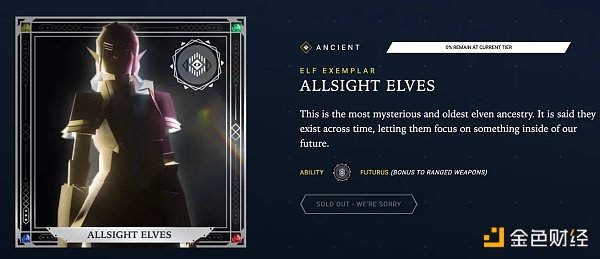Author: Rain in the Rain Source: X, @qiaoyunzi1
Unlike the previous round of Play2Earn, the quality of games in this round is even better, such as Parallel, Bigtime, Nyan, Pixels Online, etc. The change of high-quality games to users is also obvious, completing the transition from "pure Ponzi gameplay where you can make money by pledging NFT assets a few times" to "requiring users to personally participate in the game and spend time playing the game and earn corresponding income". The new model will bring us new opportunities. Games with the old model may be able to resist, but the real wealth opportunities will definitely be born in games that adopt the new model (high-quality games that require PoW).
Smarter old projects will choose to upgrade their original games or launch new games to cater to the new narrative, such as Ronin (Axie Infinity). Project parties that do not know how to change are often still playing the old tricks and overdrawing their influence in the industry (I will not name them here). I firmly believe that game project parties that choose to take the route of boutique games will definitely come out in this round.
For example, @GoGalaGames. Of course, the games launched by Gala Games in the past are still playable. It used to play the node mining model. In order to cope with the new cycle and new narrative, Gala launched Gala Chain, and based on it, built a decentralized pan-entertainment ecosystem such as music and movies. In the future, Gala Chain will also engage in storage, DePin, etc. At the same time, Gala Games' game @MirandusGame, which was in preparation a few years ago, also started NFT sales and a large number of game tests - the transition from a small-scale game to a large-scale MMORPG should not be far from the official game release.
Let's talk briefly about the game Mirandus.
1/ Overview
Medieval fantasy adventure MMORPG
The world is ruled by five player monarchs, and players can choose different professions to adventure, fight and manage. We can think of it as a large virtual society. There are no maps, no task prompts "?", and players can explore freely. The game drives the behavior of players through interests (Materium $MTRM tokens). Tokens have output and consumption.
The core mechanism of the game is "player ownership of game assets": for example, players can claim that they own a piece of wilderness on the continent and build on it.
Looking at the overall game logic, the game is driven by interests. It is similar to the previous Gala Games selling node mining, but the difference is that players need to pay the corresponding playing time to earn the corresponding tokens, similar to Bigtime, which is a real "Play2Earn".
The vitality of the game will also be stronger than the old paradigm of GameFi - real players will form a community, giving the game a longer life cycle.
2/ NFT: In-game assets
1. Exemplars
There are five types of Exemplars: ELF, HALFING, ORC, DWARF and HUMAN. Currently, ELF and HALFING NFTs are sold out, and HUMAN NFTs will soon be sold out. Different branches of different races have different abilities, such as Allsight ELF has a ranged weapon bonus. Simply put, race determines your role in the game society - because some of its characteristics can make you better at getting started with related game content.

2. Deeds
Different Deeds (such as castles, towns, villages, outposts, etc.) are provided in the game, and players can obtain ownership of in-game assets (land) through different Deeds.
3. Buldings
After the ownership of the land is determined through Deeds, players need to use Buldings NFT to build on the land.
4. Ships
In short, Ships are the exploration tools in the game, and players need Ships to explore and load cargo.
5. Docks
Docks are used to dock Ships.
6. Items
There are many types of Items, all of which are functional/buff-type game props. The one currently on sale is Lantern of The Sun, which is used for lighting and helps players explore the dark wilderness.
Mirandus puts almost all game props on the chain - this is a good thing and a bad thing. The good thing is that the game highlights the player's ownership of game assets in the form of NFT, and the bad thing is that this will increase players' unnecessary transaction costs. If Mirandus can solve this problem well after the game is released in the future, please ignore my concerns.
3/ Differences from Bigtime
Currently, blockchain games need to rely on cash flow to maintain project operations and game content (unlike buyout games). Bigtime uses time payment to earn cash flow income, but Bigtime itself does not have corresponding empowerment (in fact, Bgtime can empower tokens through repurchases and other forms, which has nothing to do with the game itself, as long as it is empowered, which is also the main point of criticism).
Mirandus earns cash flow by selling game props, and the game token $MTRM is consumed while being produced. The team can control the inflation rate of the overall game assets by the speed of launching new game content (sales of new game assets). As long as the operation is done well and the game does not dry up the pond to catch more fish, the upper limit may be higher than Bigtime.
However, due to the fixed upper limit of Exemplars (50,000), the upper limit of the game's development is also limited to a certain extent. Let's see how the official will solve this problem later.
In short, if Mirandus's operating ideas (game asset issuance, community operation, maintaining player stickiness, etc.) are correct and the execution is in place, this game has the opportunity to go higher in the context of Gala Games.
 Xu Lin
Xu Lin









